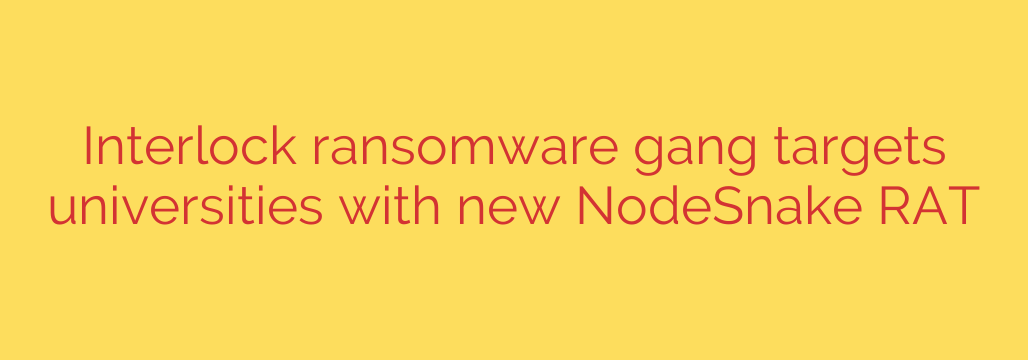
A significant cyber threat is specifically targeting educational institutions. The Interlock gang, known for deploying ransomware, has recently been observed focusing their attacks on universities. This aggressive shift involves the use of a newly identified malicious tool, a Remote Access Trojan (RAT) known as NodeSnake.
The NodeSnake RAT provides attackers with unauthorized access and control over compromised systems. This level of access allows them to move stealthily within a university’s network, steal sensitive data, and ultimately deploy their ransomware to encrypt files and demand payment.
Universities are often attractive targets for cybercriminals. They typically hold vast amounts of sensitive data, including personal information of students and staff, valuable research data, and financial records. Furthermore, their large, complex networks can sometimes present more vulnerabilities compared to corporate environments, and they may have varying levels of cybersecurity resources across different departments.
The Interlock gang’s use of NodeSnake indicates an evolution in their tactics. This new RAT is designed to be potent, allowing attackers to establish persistence on infected systems and conduct reconnaissance before launching the final ransomware payload. Successful attacks can lead to severe consequences, including massive data breaches, disruption of academic operations, significant financial costs for recovery and potential fines, and damage to the institution’s reputation.
Protecting against such threats requires a multi-layered approach to cybersecurity. Universities and other institutions should prioritize strengthening their defenses. This includes regular security training for staff and students to recognize phishing attempts and other social engineering tactics often used as initial entry points. Implementing robust network security measures, keeping software and systems patched and updated, and deploying strong endpoint protection are crucial steps. Furthermore, using multi-factor authentication for accessing critical systems and maintaining regular backups of essential data stored securely offline can significantly mitigate the impact of a successful ransomware attack. Staying informed about the latest threats, like the activities of the Interlock gang and tools like NodeSnake, is vital for proactive defense.
Source: https://www.bleepingcomputer.com/news/security/interlock-ransomware-gang-deploys-new-nodesnake-rat-on-universities/








